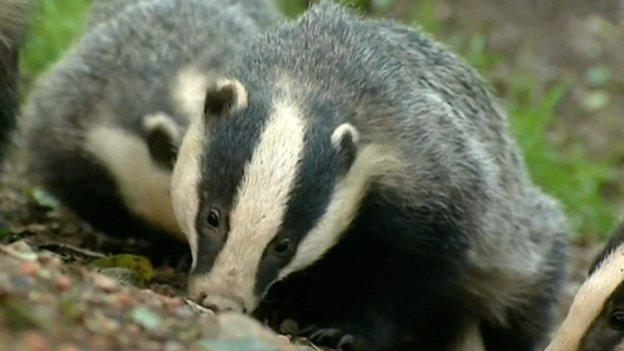Sett-to over badgers in way of housing development
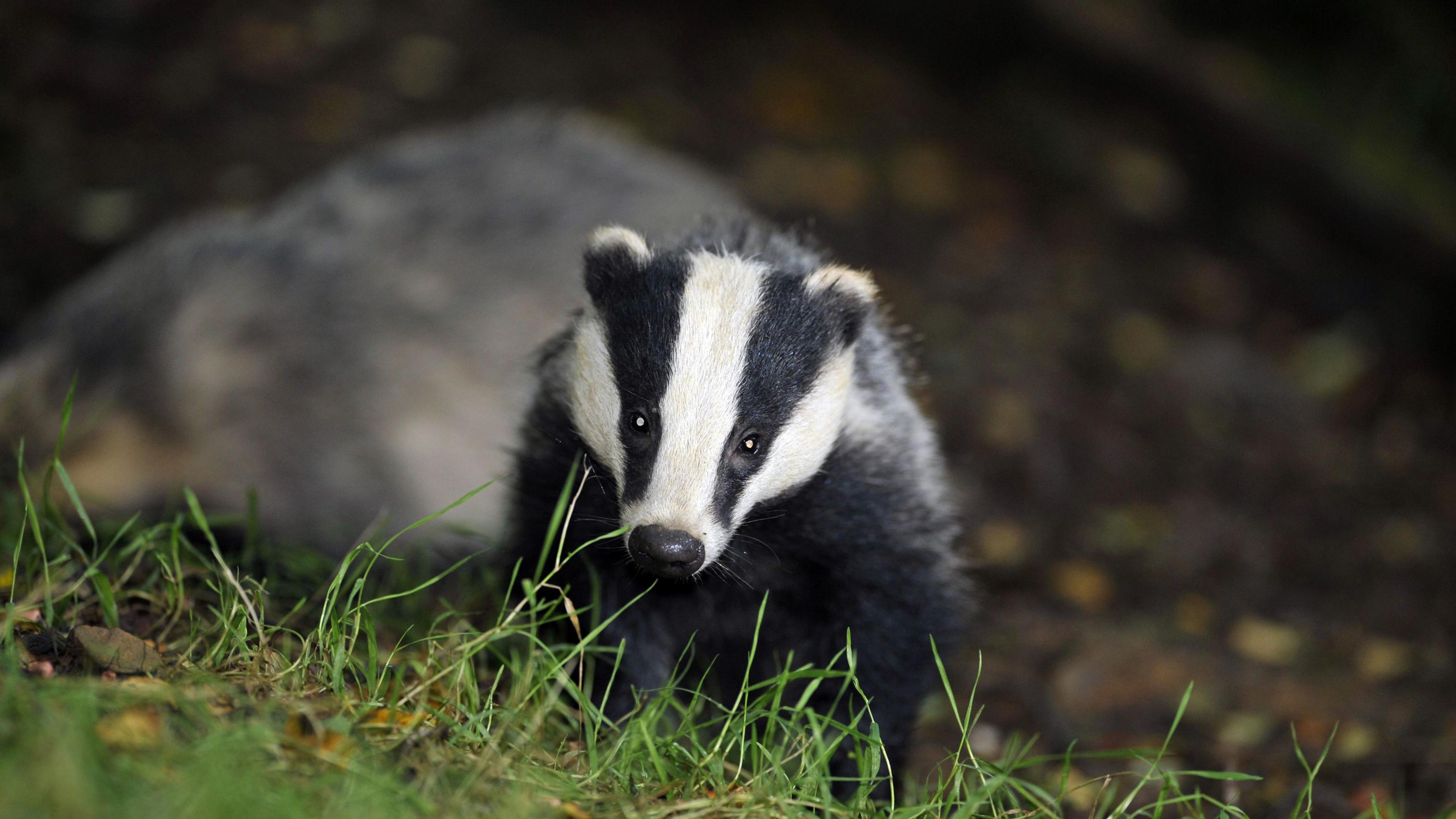
Badgers and their underground homes are protected from harm by law
- Published
A row has broken out over the treatment of a badgers sett in the line of a major housing development.
The animals' underground home is on land between Pleasley and Mansfield in Nottinghamshire, which has been earmarked for 380 homes.
Wildlife campaigners said the habitat, which is protected by law, has been incorrectly fenced off and a new artificial sett has been badly sited.
Persimmon Homes said it had worked with Natural England to relocate the badgers correctly.
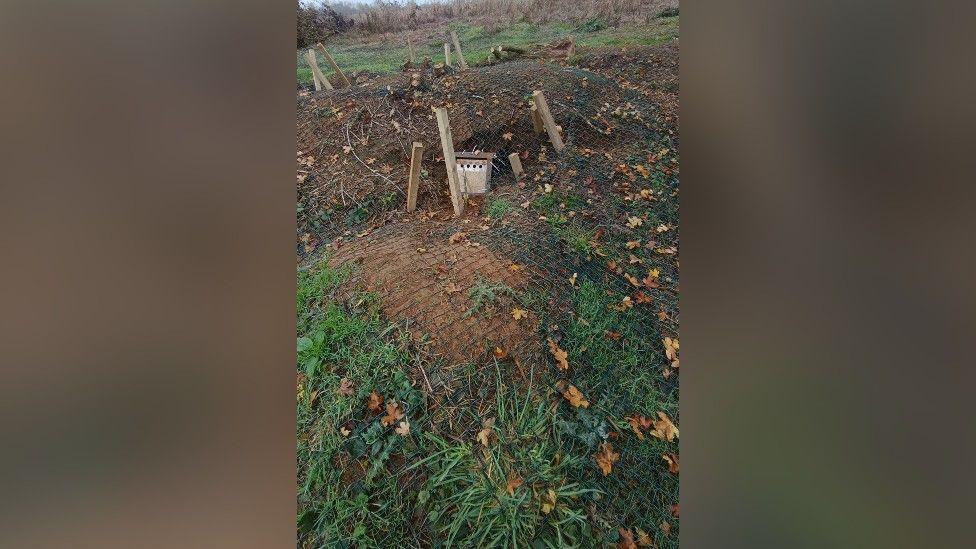
The existing sett has had one-way doors fitted so badgers can leave but not return, according to guidance
Intentionally damaging, destroying, or blocking access to a sett, or disturbing badgers in a sett, is an offence punishable by up to 6 months in prison , externaland an unlimited fine.
However if disruption is deemed justifiable and unavoidable, a licence can be obtained from Natural England.
This requires a suitable alternative sett to be available or a new artificial one to be built nearby.
Badgers are relocated by fitting one-way gates to the existing sett, allowing them to leave but not return.
There then must be 21 days without badger activity at the sett before it can disturbed.
Members of Mansfield and Warsop Wildlife Rescue Teams said they were dismayed when they visited the site.
Glenn Slaney, from the Warsop team, said they had seen fresh digging marks which they feared might indicate that badgers had been trapped inside the sett or were still active nearby.
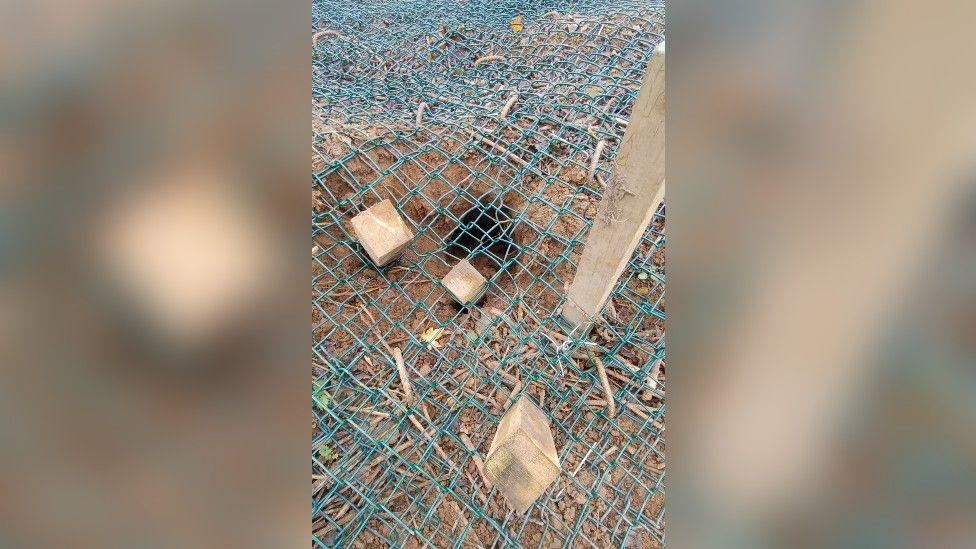
The badgers sett has been covered with metal mesh
He said: "If the sett has been disturbed and evidence of fresh digging - which I personally have witnessed - the 21 days must be reset.
"This will now take them to past the 30 November, once this date is reached if still evidence of sett being used works can't begin as it's the closed breeding season until June."
Natural England confirmed it issued a licence for the work and approved the location of the new sett.
But Mr Slaney was still unhappy with the mitigation measures put in place.
"They have built an artificial sett quite a considerable distance from where original sett is.
"It's also an unsuitable location being right at the side of a main road.
"Also the fact the land is also outlined for further developments in the future which means it will again get blocked and have to be moved on.
"We have seen no evidence of badger use, we have however monitored much activity such as the many dog walkers, kids playing on it (sledging in the recent snow) and rats," he said.
Wildlife obligations
The site developers, Persimmon, said all the work had been done in strict accordance with current legislation.
A spokesman for the firm said: “We have obtained the appropriate licences from Natural England and are working with ecologists to help relocate some badgers to a newly built sett.
"All of this is being overseen by independent ecologists in accordance with our Natural England Licence.
“We take our wildlife and ecological obligations extremely seriously. Wherever protected species are found, we work with Natural England, the relevant authorities and expert ecologists to ensure that wildlife is re-located in accordance with the relevant laws and regulations."
Persimmon also rejected criticism of the new sett, saying it was located next to an area of retained woodland.
Expert ecologist
Ecologists leading this work, FPCR Environment and Design Limited, said: "All works to close the sett have been carried out in accordance with a granted Natural England licence.
"During the sett closure monitoring, no evidence has been found of badgers being trapped in the sett. It is best practice that badger sett locations should not be made publicly available."
Persimmon said there was also evidence of badgers having moved into their new home, where food had been left for them.
The firm has also offered to set up a meeting between local wildlife groups and the ecologist so concerns can be discussed.
The local wildlife teams said they hoped to attend an on-site meeting next week.
Get in touch
Tell us which stories we should cover in Nottingham
Follow BBC Nottingham on Facebook, external, on X, external, or on Instagram, external. Send your story ideas to eastmidsnews@bbc.co.uk, external or via WhatsApp, external on 0808 100 2210.
Related topics
Related internet links
- Published12 August 2024
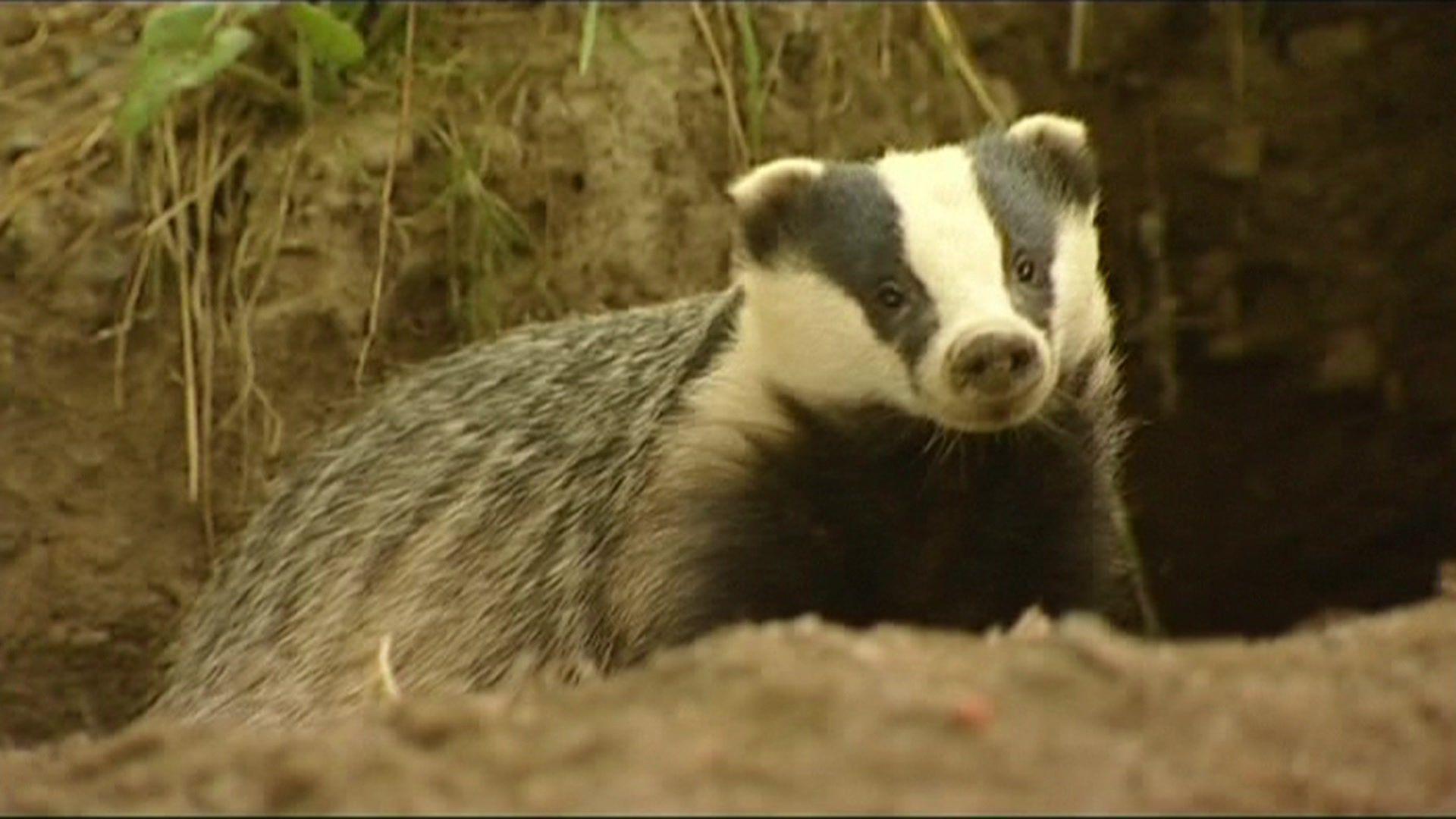
- Published21 April 2024
